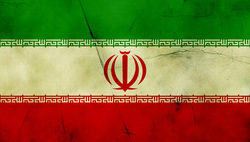
The Uruguayan Senate overwhelmingly adopted a resolution yesterday in support of Yousef Nadarkhani, the Church of Iran pastor who is currently facing the death sentence for apostasy. The resolution comes days before the pastor is expected to appear in court on unspecified charges.
The resolution, which was supported by 51 of 52 senators, urges that “for reasons of humanity, the death sentence on religious grounds be suspended and the condition of this citizen [Nadarkhani] be reviewed”, and reminds Iran of its obligations under the International Covenant of Civil and Political Rights (ICCPR). It is reflective of growing concern in Latin America regarding human rights in Iran, and follows the passing of a similar resolution by the Mexican legislature and expressions of concern from other parts of South America, including Brazil.
Pastor Nadarkhani is expected to face a new trial this Saturday, 8 September, for crimes that are yet to be specified. According to CSW’s sources, judges were reportedly instructed to formulate charges that would justify a maximum sentence. There are growing concerns that the charges may ultimately pertain to national security or even blasphemy. This would be in line with a recent tendency by the government to justify the arrest and imprisonment of church leaders by charging them with politically-related offences. Examples include Benham Irani, a Church of Iran pastor who was charged with ‘crimes against national security’ and ‘crimes against the order’, and Assemblies of God (AOG) pastor, Farshid Fathi Malayeri, accused of undertaking ‘action against the regime's security’, ‘being in contact with foreign organizations’ and ‘religious propaganda’.
Pastor Nadarkhani was arrested in his home city of Rasht in 2009 soon after questioning the Muslim monopoly of religious instruction for children, which he felt was unconstitutional. He was sentenced to death for apostasy in 2010, a decision that was upheld by the Supreme Court in 2011. Although the previous Iranian penal code did not specify death for apostasy, a constitutional loophole allowed judges to refer to Shari’a law and authoritative fatwas to justify such a sentence. The current Iranian penal code does not specifically mention apostasy as a crime, but allows judges to continue utilizing these sources in order to sentence defendants to death for apostasy.
CSW has launched a global prayer campaign in the run-up to the pastor’s trial on Saturday.
CSW’s Chief Executive, Mervyn Thomas said, "CSW applauds the Uruguayan Senate for standing in solidarity with Pastor Nadarkhani and with others who are suffering human rights violations in Iran. This resolution is particularly encouraging because it reminds Iran of its obligations under the ICCPR at a time when the regime is initiating a fresh trial, and contrary to all justice, the charges are yet to be made known to the accused. CSW urges the Iranian government to respect its obligations under the ICCPR and ensure a fair trial, noting in particular Iran’s failure to inform the pastor promptly and in detail of the nature and cause of the charges against him, as stipulated in article 14 of the Covenant. This raises legitimate concerns regarding the fairness of the upcoming trial, and also calls into question the veracity of any charges that are leveled at this late stage. CSW therefore continues to call for Pastor Nadarkhani’s immediate and unconditional release, and is urging the Church worldwide to unite in prayer for him as he appears in court this weekend.”
Pastor Nadarkhani is expected to face a new trial this Saturday, 8 September, for crimes that are yet to be specified. According to CSW’s sources, judges were reportedly instructed to formulate charges that would justify a maximum sentence. There are growing concerns that the charges may ultimately pertain to national security or even blasphemy. This would be in line with a recent tendency by the government to justify the arrest and imprisonment of church leaders by charging them with politically-related offences. Examples include Benham Irani, a Church of Iran pastor who was charged with ‘crimes against national security’ and ‘crimes against the order’, and Assemblies of God (AOG) pastor, Farshid Fathi Malayeri, accused of undertaking ‘action against the regime's security’, ‘being in contact with foreign organizations’ and ‘religious propaganda’.
Pastor Nadarkhani was arrested in his home city of Rasht in 2009 soon after questioning the Muslim monopoly of religious instruction for children, which he felt was unconstitutional. He was sentenced to death for apostasy in 2010, a decision that was upheld by the Supreme Court in 2011. Although the previous Iranian penal code did not specify death for apostasy, a constitutional loophole allowed judges to refer to Shari’a law and authoritative fatwas to justify such a sentence. The current Iranian penal code does not specifically mention apostasy as a crime, but allows judges to continue utilizing these sources in order to sentence defendants to death for apostasy.
CSW has launched a global prayer campaign in the run-up to the pastor’s trial on Saturday.
CSW’s Chief Executive, Mervyn Thomas said, "CSW applauds the Uruguayan Senate for standing in solidarity with Pastor Nadarkhani and with others who are suffering human rights violations in Iran. This resolution is particularly encouraging because it reminds Iran of its obligations under the ICCPR at a time when the regime is initiating a fresh trial, and contrary to all justice, the charges are yet to be made known to the accused. CSW urges the Iranian government to respect its obligations under the ICCPR and ensure a fair trial, noting in particular Iran’s failure to inform the pastor promptly and in detail of the nature and cause of the charges against him, as stipulated in article 14 of the Covenant. This raises legitimate concerns regarding the fairness of the upcoming trial, and also calls into question the veracity of any charges that are leveled at this late stage. CSW therefore continues to call for Pastor Nadarkhani’s immediate and unconditional release, and is urging the Church worldwide to unite in prayer for him as he appears in court this weekend.”


 RSS Feed
RSS Feed